Education in the Sahel: moving from intention to impact
A meeting focusing on education in the Sahel was held on October 13 as part of the World Bank Group’s annual meetings, under the aegis of the Sahel Alliance. The discussion took place between government representatives from Sahel countries and Sahel Alliance members as well as key partners. The objective? To take stock of progress, to provide a platform for countries to share their strategies and priorities for international support in order to achieve their goals, and to get feedback from partner agencies based on the issues highlighted by Sahelian governments.
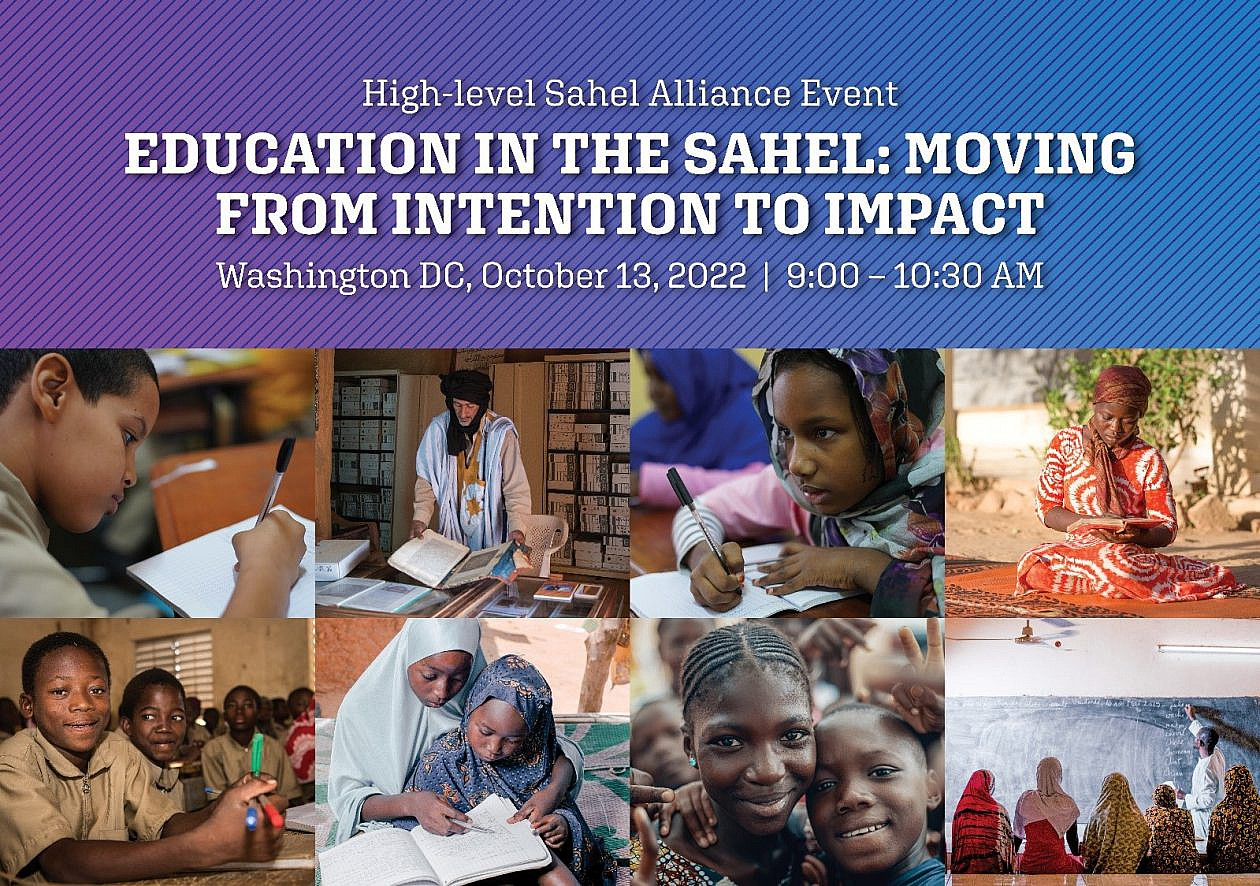
Over the past 15 years, access to education in the Sahel has improved: primary school enrolment has almost doubled, while the numbers have tripled in secondary school. Nevertheless, the multiple crises facing the Sahel countries are accentuating the challenges and jeopardising the gains made in terms of schooling for children and young people, especially girls. The meeting of October 13th follows the signing of the Nouakchott Declaration – a political declaration of Sahelian heads of state approved in December 2021.
Carmen Magariños Casal, Representative of the Presidency of the Sahel Alliance’s General Assembly, stressed in her introductory speech that “In a context of deteriorating security, we want to support the strengthening of the State’s presence as well as the provision of basic services, such as education, which is a fundamental right. In such a volatile context, we must not forget the students who have dropped out of education and have not returned to school. Second-chance programmes must be promoted to provide these young people with the basic literacy skills needed for employment.”
Ms. Magariños Casal also recalled that “The Nouakchott Declaration demonstrated a strong commitment by Sahelian governments to address the challenges of education in the region. The Sahel Alliance and its members wanted to follow up on this commitment at the 3rd Assembly of the Sahel Alliance in Madrid in April 2022. They adopted a declaration on education and youth to support the recommendations of the White Paper on Education in the Sahel and made a strong appeal to allocate more resources to education.”
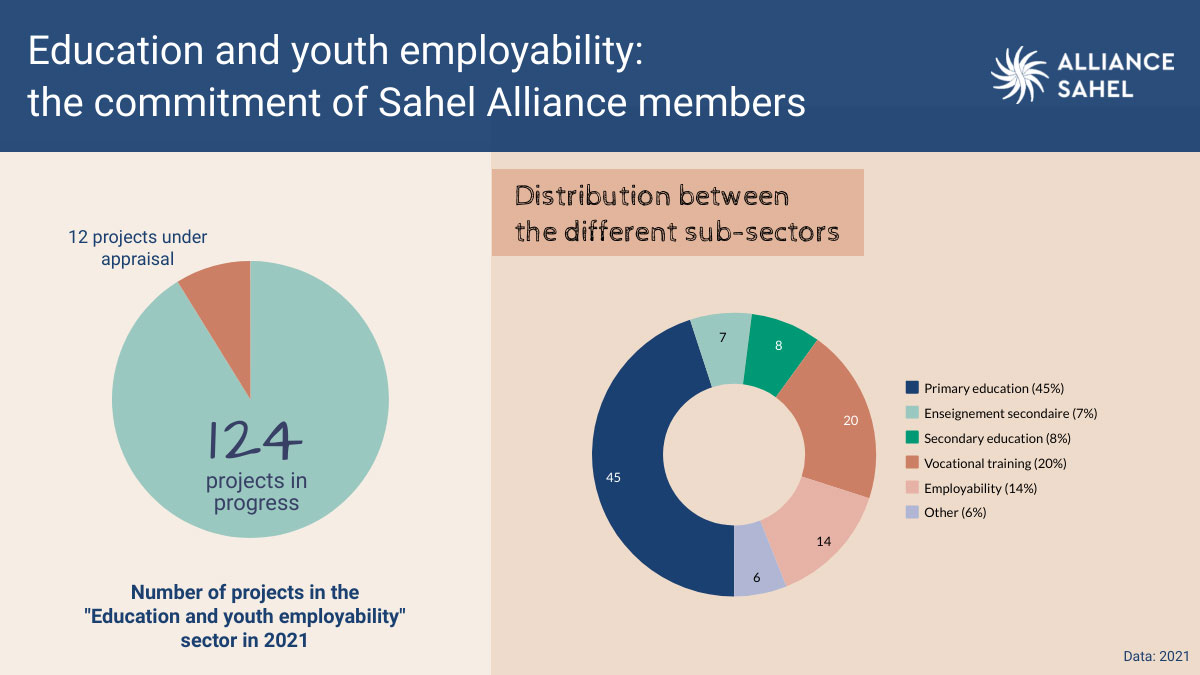

Introducing the meeting, Ousmane Diagana, the World Bank’s Vice President for West and Central Africa and Chair of the Sahel Alliance’s Operational Steering Committee, recalled the achievements and rich history of the region: “The Sahel is a land of intermingling and encounters, a window opened to the wider world. When we talk about intermingling, we are obviously talking about communication, and communication means literature and writing. The Sahel is also a land of trade, and trade means computation. The fundamentals of any education system are the following three things: writing, reading and arithmetic. Today there is reason to wonder about a situation where education has become a matter of concern. The context has significantly changed and we need to arm ourselves with courage and political will and strengthen partnerships so that we can place the importance of education for the Sahel countries back on the agenda.“
Ousmane Diagana mentioned 3 key elements:
- The “whole of government” approach is indispensable. Education must be at the centre of development strategies. Education ministers need sustained support from other members of government
- The mobilisation of the education system’s stakeholders, the teachers, whatever the level may be, is critical. Particular attention must be paid to their training, to their motivation in monetary and non-monetary terms. Absolute governance is needed as to how they are deployed
- The importance of the communities’ role in the schooling of children and young people.
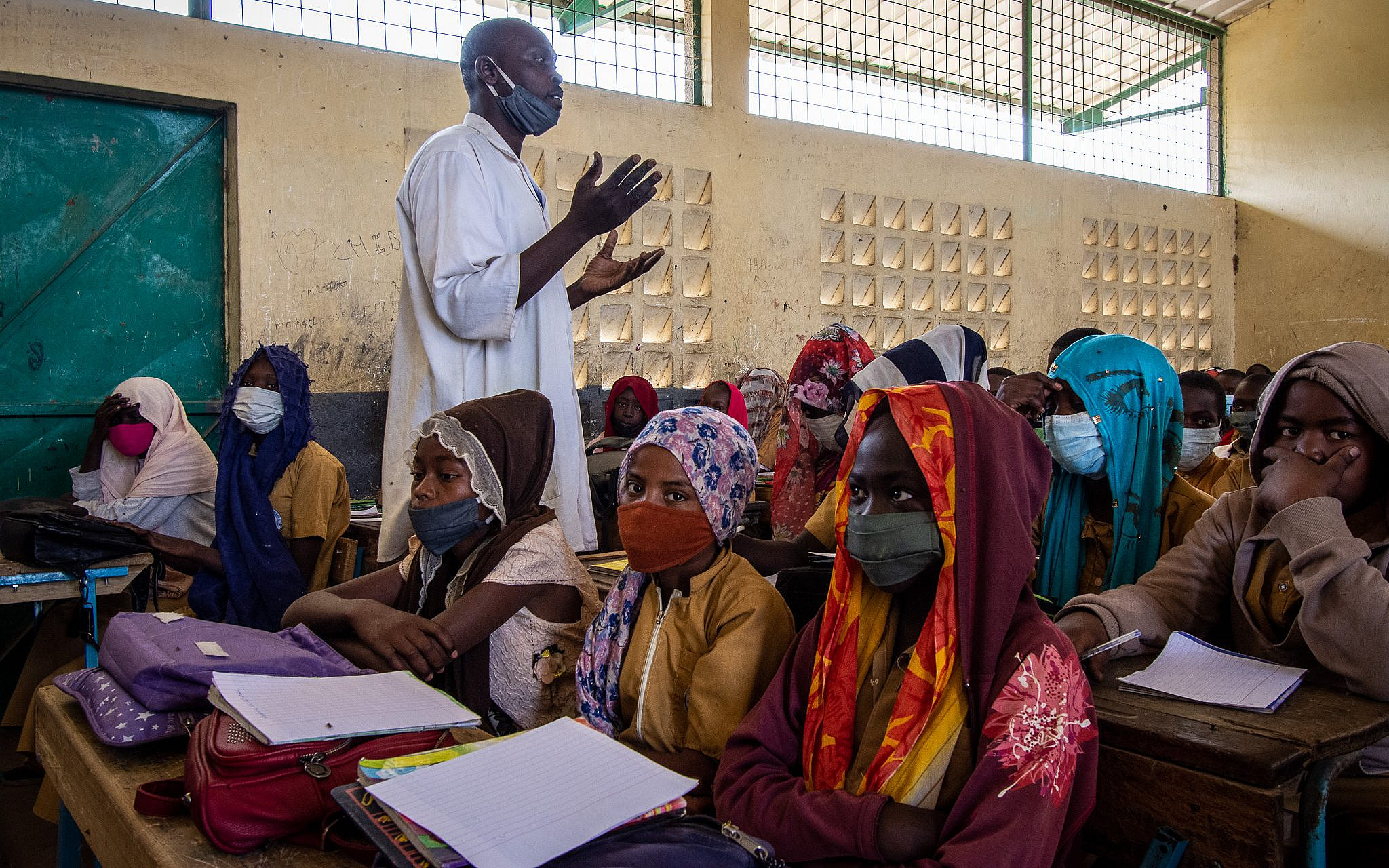
Mohyedine Ould Sidi-Baba, Director and Focal Point of the Ministerial Conference for Mauritania’s Ministry of Economic Affairs and Promotion of Productive Sectors, reported on the follow-up to the Nouakchott Declaration signed by the representatives of the Sahel countries’ governments.
There is a very clear and common will by the 5 countries to move forward together on education-related issues. These countries agreed in the Nouakchott Declaration to prioritise their joint action on the most urgent and profitable issues.
After the Nouakchott conference, the Mauritanian government took the initiative last August to convene a ministerial round table with the other countries in the region. The five heads of delegation adopted a roadmap until February 2023, which includes two important actions: the creation of the Sahel Institute of Education and a major regional project to support the education system in the Sahel.
Progress will be facilitated through a regional approach

In his speech, Ousmane Mamoudou Kane, Minister of Economic Affairs and Promotion of Productive Sectors, recalled that “In the past three years, Mauritania’s share of the budget allocated to education has increased from 13 to 20%, despite the difficult context. We want to reform the education sector in Mauritania. This year is special because we have decided that the public school system is being set up. Above all, we will need technical support, advice and financial support afterwards. (…) Our countries will be much more successful if the issue is tackled at regional level. Mauritania is willing to go much further with Niger, Mali, Burkina Faso and Chad to work together for a consistent reform of the education system. We wish to be accompanied by the members of the Sahel Alliance.”
The representative of Chad spoke of the difficulties experienced by his country. “We are facing a low rate of schooling for children aged 6 to 14. The extent of this situation is partially ascribable to the still very inadequate availability of schooling opportunities, as well as equipment and supplies. Only 4.4% of students have a reading textbook and 3.6% a math textbook. Furthermore, statistics show that three-quarters of students are taught by teachers with no more than a secondary school diploma. Chad’s priority is to continue building quality primary and secondary schooling by expanding basic education to lower secondary education and ensuring that disparities are reduced.”
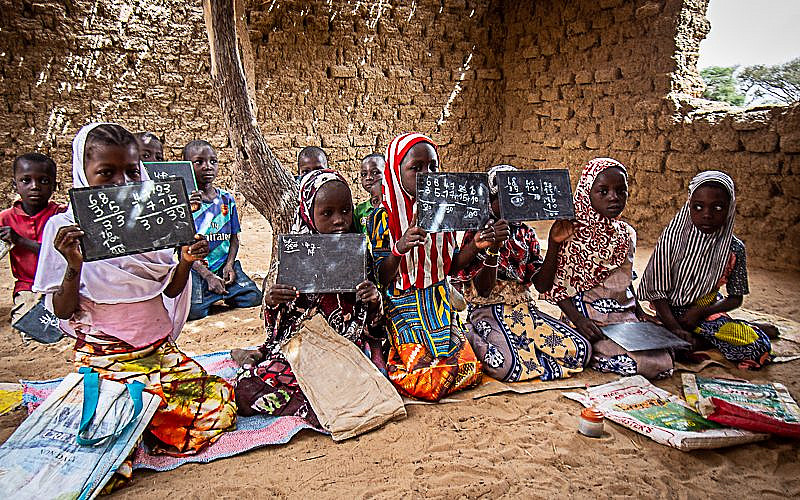
Niger is strongly committed to education issues. The country has moved from 2.5% of GDP devoted to education to 3.8% in 2020, which is above the minimum international standard of 3%. Niger’s representative touched on the 4 urgent areas of concern for the country in terms of education in his intervention. These are:
- The development of adequate school infrastructure. This involves replacing the straw hut classrooms. There are 75,000 straw hut classrooms in Niger, which are vulnerable to bad weather and fires and have a negative impact on the school calendar.
- Education of young girls for greater equity and inclusion. The President of the Republic of Niger is planning to build 100 boarding schools for young girls in local schools.
- Professional development of teachers
- Improving the governance in the education system
Education is not an expense, it is an investment
The development partners also intervened on the basis of the thematic priorities highlighted by the Sahelian governments. Hélène Charton, education expert at the European Commission, recalled that “Teachers play a fundamental role. There is a lot of talk about the learning crisis, but this crisis is above all a teaching crisis. Qualified, motivated, well-trained teachers are the absolutely prerequisite for the improvement of all education systems.”
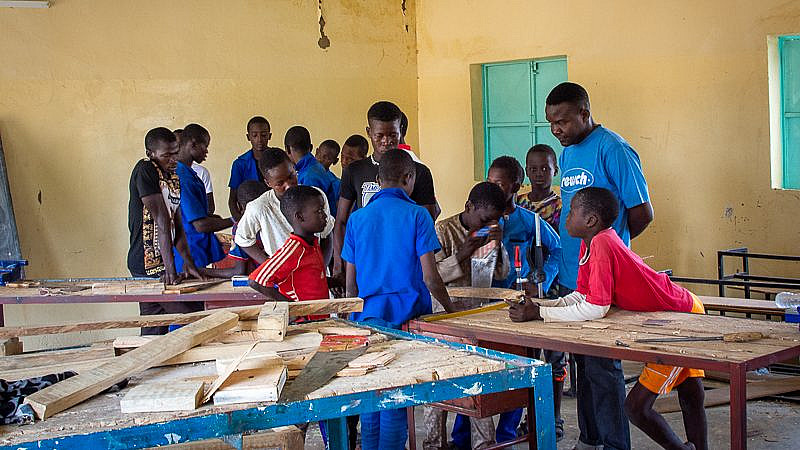
According to Christian Yoka, Director of the Africa Department at the French Development Agency (AFD), “Education is not an expense, it is an investment. An additional year of schooling generates 10% more income on average. Moreover, access to and retention in school for girls from poor households until the end of secondary school represents an extremely powerful development lever in terms of impact on maternal and child health, impact on economic growth, impact on economic empowerment, and therefore in terms of political stability. (…) Access to and retention in school for girls is not only a matter of providing educational opportunities. The obstacles are multidimensional, be they security-related, economic, social, health- or nutritional. It is therefore essential to adopt multidimensional, multisectoral and complementary approaches.”
In his closing remarks, Ousmane Diagana recalled the fundamentals of the Sahel Alliance. “We support the priorities of governments; the governments are responsible for delivering educational services and are therefore the first to mobilise financial resources for the implementation of these educational priorities. What we need to provide is additional knowledge and advice, based on our analysis and international experience. The Sahel Alliance is a manifestation of the solidarity that institutions and partners must have for the countries with which they are in partnership. This solidarity must be expressed through concrete actions beyond speeches.“
Go further

